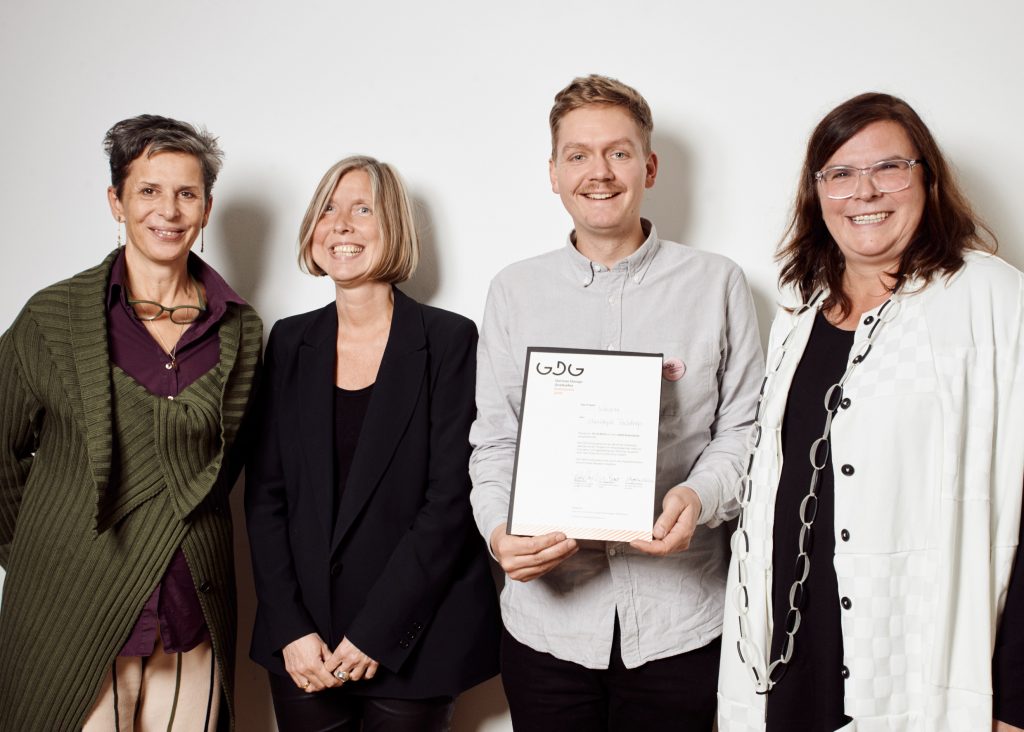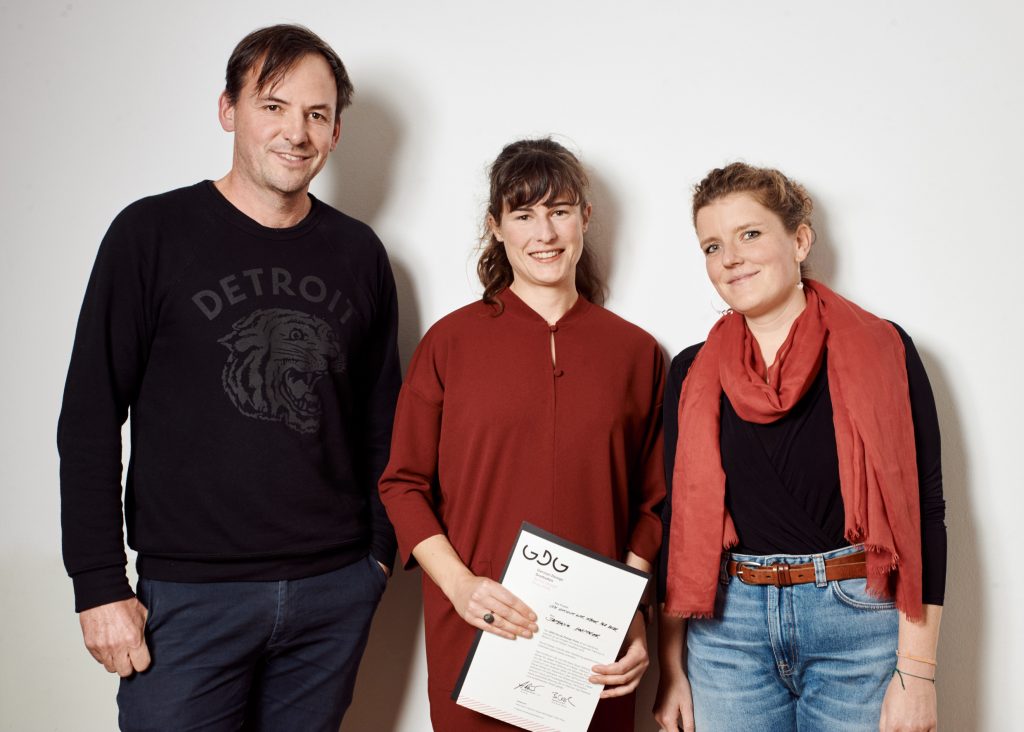Every year, cash prizes in various categories are awarded to selected graduates. These include the Culture Award and the Social Design Award. They are selected by renowned personalities and institutions.
Images © Mirja Zentgraf

Preisträger Christoph Tochtrop und Dr. Claudia Banz
GDG Culture Award
The GDG Culture Prize is awarded to a project with outstanding attitude, innovation and cultural and creative impact by three representatives of renowned cultural institutions and is endowed with 2500 Euros.
2019 was awarded by Dr. Angelika Nollert, Neue Sammlung München, Dr.Claudia Banz, Kunstgewerbemuseum Berlin and Tulga Beyerle, Museum für Kunst und Gestaltung Hamburg.
2019 Christoph Tochtrop and his project Vinson was selected for the Culture Award.
Vinson is a rotating device for the entire household. It consists of a drive, handle and control unit that electrically drives numerous tools. A device that makes its components available for many applications, thus combining comfort, utility and sustainability.

GDG Social Design Award
The GDG Social Design Prize is awarded to a project that initiates social change processes through design. The prize is awarded by renowned personalities and institutions in the field of social design and is endowed with 500 euros.
The Construct Lab and the Hans Sauer Foundation stand for this claim to design and so Barbara Lersch of the Hans Sauer Foundation and Alexander Römer of the Construct Lab, as ambassadors for social design, award a scholarship of 500 euros to a graduate and support him/her with networking and knowledge exchange. The focus will be on process design, participation and the potential impact of the work created within the scholarship.
2019 Stephanie Hobmeier with her Theory Book Die Zukunft war früher auch besser was selected for the Social Design Award.
This work investigates the role of female designers in social transformation processes. Based on a comparison of the curricula of two design colleges, which in their orientation advocate a new understanding of design and a changed role model of female designers, considerations for a future-proof and sustainable educational profile are developed.
Read more on the statements from Stephanie Hobmeier and Barbara Lersch
